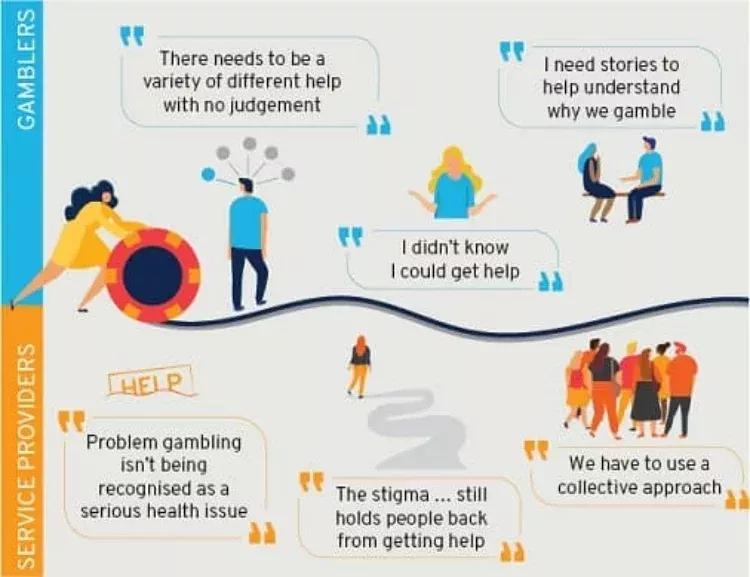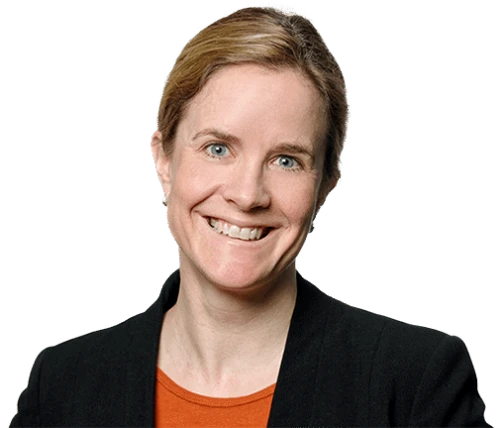The NSW Office of Responsible Gambling (ORG) oversees programs that support responsible gambling and help reduce gambling-related harms.
The service delivery model was not meeting contemporary needs
Recreational gambling is popular in NSW, but for some people gambling causes harm to them, their family members, friends and colleagues. For two decades, ORG has funded local services to provide help, predominantly through face-to-face therapeutic and financial counselling.
ORG wanted to rethink its services to reflect changes in gambling and reach as many people as possible in ways they wanted to access services.
We involved users and providers in co-designing a solution
We got to work researching best practice through interviewing experts and reviewing evidence from Australia and around the world (including New Zealand, the UK, Canada and Norway). We also engaged with service providers in forums and site visits across NSW.
Informed by these inputs, we developed a new approach through co-design with gamblers, family members, friends, service providers and complementary service providers. We ran focus groups and human-centred design workshops that simulated services and pathways to access them.
Here’s some of what gamblers and service providers told us:

We developed a statistical model of demand for gambling services to assess who needs help and where, both now and in the future. The outputs were displayed on Shiny, a user-friendly platform to capture insights from data.
To help design future services, Nous developed a new model structure that included:
- a shared digital platform for discovering and accessing services, enabling increased connection between users, providers and the funder
- self-service digital options to expand reach and meet user needs
- fewer and larger delivery contracts aligned to boundaries of local health districts to enable better integration
- services aligned with the needs of Aboriginal and culturally and linguistically diverse (CALD) user groups
- data collection and evaluation mechanisms to encourage agility and continuous improvement.
We developed a costing model and framework to deploy resources where they will achieve the greatest benefits.
The new approach is being implemented
We prepared a plan for transition, including details of initiatives. We offered guidance on planning for new types of contracts, on a commissioning approach to procurement to enable a smooth transition and on staged implementation where there are thin markets in regional areas.
The new system is intended to more than triple the number of people reached for only a small cost increase. These benefits arise from:
- an integrated scheduling and digital delivery platform, enabling a substantial increase in resource utilisation and more convenient user access
- expanding service options, especially low-cost self-service digital services, which are preferred by many users
- increasing the size of contracts and providing longer-term certainty for providers to enable economies of scale and a commitment to develop capabilities.
The redesign was presented to the Trust of the Responsible Gambling Fund and has been approved by the responsible minister to proceed for implementation.
ORG has established an implementation transition team. Service providers report enthusiasm for the change, following their involvement in its development.
Watch this video to find out more
What can you learn from the Office of Responsible Gambling
Listening to service users (current and potential) will generate insights, while co-designing with service providers will improve outcomes and generate support for reforms.
Citizens expect government services to use digital tools, including appointment booking, online counselling, video delivery, self-help apps and online communities.
People in Aboriginal, CALD and rural communities particularly value anonymous and easily accessed online services.




